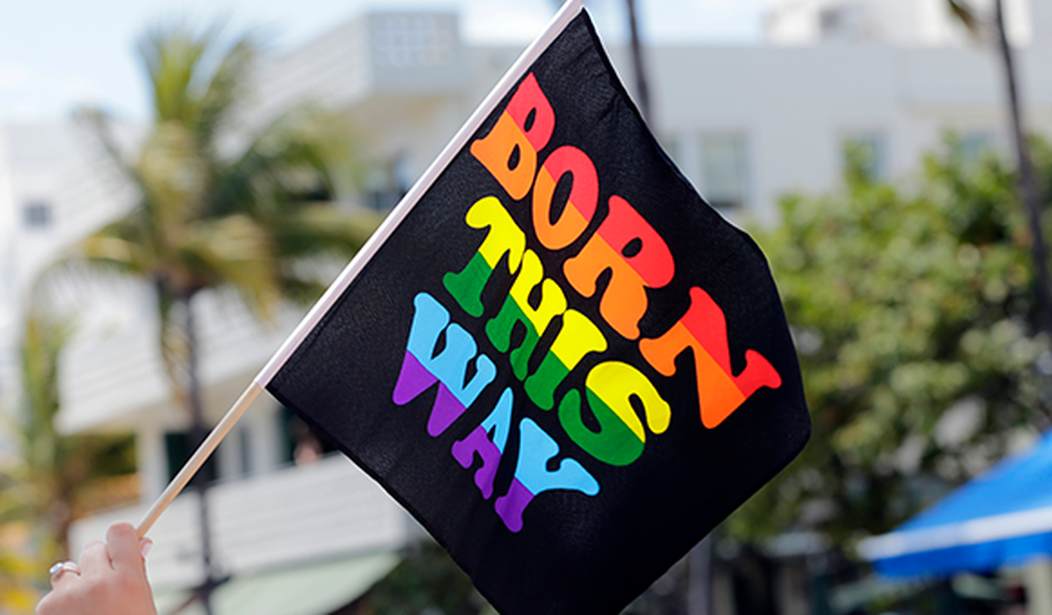If you’re attending the University of Utah, choose your words wisely. That’s the message of an edict to Fall ’22 students.
The directive was released in July, bearing the sleek title of “Inclusive Style Guide.” Notably, the guide governs the “style” of what people say.
Upon rollout, U of U’s website declared, “Words matter.”
And:
The University of Utah celebrates the rich diversity of our staff, students, trainees, and faculty by striving to make our campus a welcoming, inclusive, and antiracist environment.
As for “antiracism,” it’s been defined by UCLA Law Professor Kimberlé Crenshaw in Good Housekeeping like so:
“Antiracism is the active dismantling of systems, privileges, and everyday practices that reinforce and normalize the contemporary dimensions of white dominance. This…also involves a critical understanding of the history of whiteness in America.”
Back to the University of Utah’s announcement:
[W]e have a responsibility to use language and images that are respectful to people of all cultures, backgrounds, identities, and experiences. University of Utah Marketing & Communications (UMC), Equity, Diversity, and Inclusion (EDI), and U of U Health Marketing & Communications collaborated with experts from across the U to curate an Inclusive Style Guide that aims to provide thoughtful, practical guidance when speaking to or about:
- Gender
- Immigration, international, refugee status
- LGBTQIA+
- People with disabilities
- Race and ethnicity
- Socioeconomics
Gone are the days of “Sticks and stones…”:
Learning why certain terms are preferred or harmful is just as important as using the appropriate term itself.
Regarding socioeconomics, students are directed toward important concepts such as “underrepresented,” “underserved,” and “historically excluded.” Language should be sensitive to those suffering thusly. Where international students are concerned, the guide instructs enrollees not to use “America” as synonymous with the United States. Furthermore, Americans should focus on others’ “achievement, their leadership, their scholarship, their research, etc. — not their immigration status.” And as for nonwhites’ names, Caucasians should incorporate them:
Many People of Color are told that their names are too complicated or too difficult to pronounce.
With respect to the disabled, attendees are advised to “avoid ableist language” such as:
- Blind spot
- Tone deaf
- That’s so lame
- I stand with/stand against, etc.,
- That was crazy/insane/nuts
- Psycho
- Stupid/dumb
- Retarded
Moving on to “LGBTQUIA+,” the guide offers a wealth of orders. Unacceptable syllables are paired with their rightful replacements:
- closeted –> not out
- openly gay –> out
- gay community –> LGBTQIA+ community
- homosexual –> gay or lesbian
- sexual preference –> sexual orientation
- transvestite –> cross-dresser
- sex reassignment surgery –> gender affirming surgery
Beyond those, the University of Utah 86’s biology:
- biologically male/female –> assigned male/female at birth
Additionally, observe our evolution:
- Avoid language that puts more value on being or appearing cisgender or that carries judgment or biases about how public a person is about being LGBTQIA+.
- Recognize that there are more than two genders. Avoid the language of gender opposites. (i.e. instead of “opposite gender” use a “different gender”)
- Embrace the fact that language can evolve quickly.
For students and staff, neopronouns are a massive must:
Interview Guidelines
- Ask a person’s name, gender, and pronouns.
Example: “Hi, I’m ____ and I use _____ pronouns. What pronouns do you use?”- Ask the interviewee if they go by a name that is different than the one you have (i.e. what is listed in the directory, etc.).
- Before writing about someone’s gender, or someone’s sex assigned at birth, question the value it brings to the story. If you feel you must refer to the person’s gender, ask how they identify.
- If you’re in doubt about how you refer to someone, or how they fit into the larger context of your story, consider allowing the interviewee to preview the work before publishing.
Education has come quite a ways. Not long ago, universities mostly just told incoming freshmen, “Welcome to college.” Now they’ve got lots to say — about what those attending can’t.
Will America ever return to simpler times? If so, it won’t be soon. For the foreseeable future — under an unprecedentedly sophisticated system — we’ll have to figure out what everyone’s pronouns are and utter those unique identifiers whenever we speak of each individual. The fact that pronouns are rarely used in the person at issue’s presence, it appears, is irrelevant. Perhaps we’ll be better able to remember all the new terms as we lop from our vocabulary the contemporarily unacceptable ones.
The world is enlightened anew. School is changing; society is changing; and evidently, Utah is changing:
REPORT: BYU 'Human Development' Course Features the 'Genderbread Person,' Says Jesus Was 'Not Masculine'https://t.co/xD35yvxr7A
— Alex Parker (@alexparker1984) December 14, 2022
-ALEX
See more content from me:
California College Approves Electronic Security System to Bar White Males From Nonwhite ‘Safe Space’
Iconic Doll Company Tells Children They May Need to Take Puberty Blockers
California University Hosts ‘Kinky Karaoke,’ Ad Features Naked People Perched on Sex Toys
Find all my RedState work here.
Thank you for reading! Please sound off in the Comments section below.













Join the conversation as a VIP Member